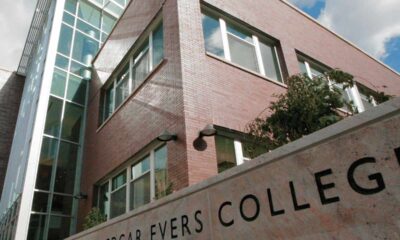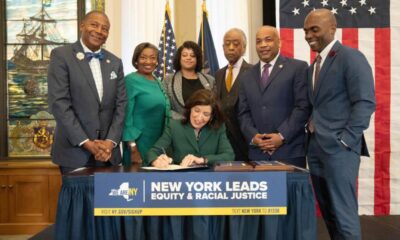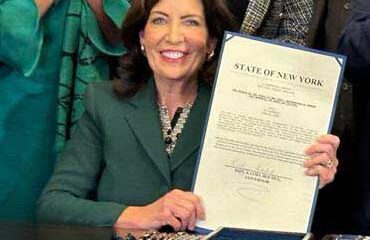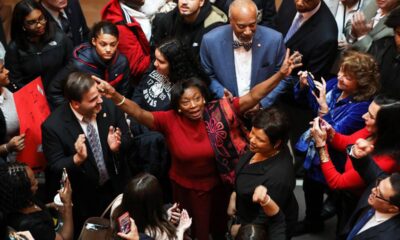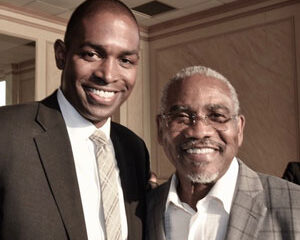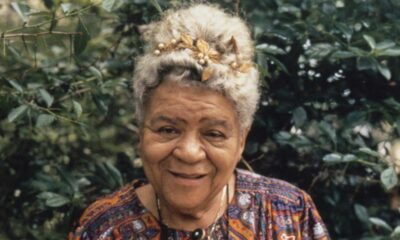National News
New York Legislators to Pass Bill Creating Reparations Study Commission
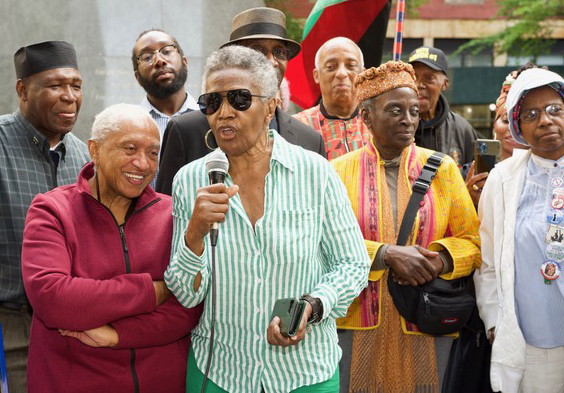
Slavery remained legal in New York until 1827. And even after that, it remained closely tied to the institution when it continued to exist in southern states
By Bill Mahoney,
www.politico.com
ALBANY, N.Y. — State legislators plan to pass a bill this week to create a commission tasked with studying the history of slavery and racial discrimination in New York and recommending possible reparation payments, three individuals familiar with talks said.
“We have a two-way agreement. We’re confident that we’re going to pass the bill,” Assembly sponsor Michaelle Solages (D-Nassau County), said in an interview with POLITICO.
Sen. James Sanders, the Senate sponsor of the bill, also expressed hope about the measure being approved before the legislative session ends this week.
“New York has an accounting it must do,” Sanders (D-Queens) said. “If we are ever to be the America for everybody, then we have to come to grips with America’s original sin, slavery.”
New York would be the second major state to study whether to issue reparations. In 2020, California created a task force to study reparations, and now it is grappling over whether to issue some residents with as much as $1.2 million in reparation payments.
Slavery remained legal in New York until 1827. And even after that, it remained closely tied to the institution when it continued to exist in southern states.

“There’s a real question of whether slavery would have been economically feasible without New York,” Sanders said. “New York provided the insurance for the slave industry; New York paid for many of the votes; New York bought much of the cotton.”
The commission would look at more than just slavery. It would also examine “the lingering negative effects of the institution of slavery and discrimination on living people of African descent.”
“Throughout history, here in New York and across the country, African Americans have been subjected to racial, economic, and institutional injustices that have plagued communities for decades,” Assembly Speaker Carl Heastie said in a statement provided to POLITICO. Heastie, the first Black speaker of his chamber, referred to the bill as a “historic piece of legislation.”
Topics such as mass incarceration and housing discrimination will be examined, Solages said.
“If you think about all the Black communities that were displaced, like Seneca Village, which is the modern Central Park, or Lincoln Center, or Timbuctoo in the Adirondacks, many of these Black communities were destroyed, and we’ve never atoned for that,” she said.
The panel would recommend “appropriate remedies and reparations” in a report to the state Legislature, as well as any other “laws, policies, programs” and projects that might be enacted by law. Three members apiece would be appointed by the two Democratic leaders in the Legislature as well as Gov. Kathy Hochul, who would still need to sign the bill for it to be effective.
Its recommendations would not be binding and would eventually need to be approved by the Legislature in a future year. But they could certainly force a conversation about the subject.
“Reparations is not just about a paycheck, it’s much more than that,” Solages said. “It’s atoning, it’s talking about what we can do to support and uplift Black New Yorkers throughout this great state.”
Joseph Spector contributed to this report.


